Western Academic Leadership Forum Sidebar
Message from the Chair
Renny Christopher
Forum Executive Committee, Washington State University Vancouver
Renny Christopher has served as vice chancellor for academic affairs at Washington State University Vancouver since 2013. Her research interests focus on issues of race, class and gender in U.S. literature and culture. Her memoir, A Carpenter’s Daughter: A Working-Class Woman in Higher Education (Sense Publishers, 2009), addresses her experiences as the first in her family to attend college. She has taught at several universities in California and was a Fulbright scholar in Spain in 2000. Before earning her doctorate, Christopher worked as a printing press operator, typesetter, carpenter and horse wrangler.
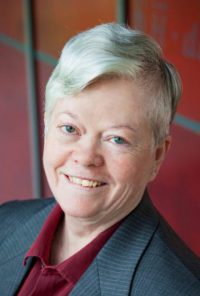
As chair of the Western Academic Leadership Forum, I want to welcome you to our annual meeting in beautiful downtown Vancouver, Washington. With the theme “Breaking Through the Noise: Messaging for Maximum Impact,” our program looks to the present and future of higher education and how we can better tell our story to multiple audiences (students, legislators, faculty) through multiple channels ranging from face-to-face, to social media, to online education platforms, to new channels yet to come. How do we focus and enhance our message in this “noisy’ environment? These questions are of great importance in higher education right now. I hope you enjoyed our recommended advance readings and will have the opportunity to actively engage in conversations with two of the authors during this meeting. This program provides an ideal mix of expert commentary on our topics and opportunities for meaningful interactions with colleagues in small group discussions. I believe we will all leave with new ideas and perspectives that will be reinvigorating. But, before you go, be sure to thank our generous sponsors. Without their benevolent support, this meeting would not be possible.
Program
WEDNESDAY, APRIL 25
Location: Hilton Vancouver Washington Hotel
9:00 am – noon
2017 Academy
Noon – 1:00 pm
Lunch – for Academy Cohort and Executive Committee
5:30 – 6:30
Opening Reception
1:00 – 4:30 pm
Forum Executive Committee Meeting (executive committee members only)
Claude Steele
2018 Forum Annual Meeting speaker, Stanford University
Claude Steele
2018 Forum Annual Meeting speaker, Stanford University
Claude Steele is an American social psychologist and currently serves as emeritus professor at Stanford University. He is best known for his work on stereotype threat and its application to minority student academic performance. His earlier work dealt with research on the self (e.g., self-image, self-affirmation) as well as the role of self-regulation in addictive behaviors. In 2010, he released his book, Whistling Vivaldi: How Stereotypes Affect Us and What We Can Do, summarizing years of research on stereotype threat and the underperformance of minority students in higher education. He has served in several major academic leadership positions such as the executive vice chancellor and provost at University of California Berkeley, the I. James Quillen dean for the school of education at Stanford University, and as the provost of Columbia University. He holds B.A. in psychology from Hiram College (OH), an M.A. in social psychology from Ohio State University, and a Ph.D. in social psychology and statistical psychology from Ohio State University.
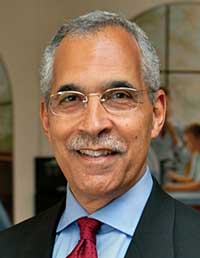
6:30 – 8:30 pm
Welcome Dinner and Keynote – Stereotype Threat and Identity Threat: The Science of a Diverse Community
Drawing on stereotype threat and social identity threat research, this talk will address the why, what and how of diverse learning communities: why they are important, a working hypothesis about what is critical to their success and what research reveals about how to achieve that success. The talk’s practical aim is to identify features of diverse learning communities—schools, universities and academic disciplines—that while good for all students, are especially helpful for minority students generally, and for women in STEM fields. The talk will also explore the psychological significance of community and its role in learning.
Introducer: Dan Howard, New Mexico State University
Speaker: Claude Steele, Stanford University
THURSDAY, APRIL 26
7:00 am – 5:00 pm
Registration Open
7:30 – 8:15 am
Breakfast
8:15 – 8:30 am
Welcome and Meeting Overview
Renny Christopher, Washington State University Vancouver
8:30 – 9:30
Taking the Temperature of Today’s Student Body
For many students, the college experience is the gateway to career and life success. For others, it is a constant struggle to balance the demands of college with those of life. While some students are dealing with mental health issues, others are facing food and shelter insecurity making our goals for student success much more challenging to achieve. What are the effects of some of the social determinants on our students? What can we learn from the data on our students’ wellness? How do we tell this story successfully to stakeholders so that it leads to more understanding and resources? Our panelists will engage in thoughtful dialogue around these and other important questions.
Moderator: Laura Woodworth-Ney, Idaho State University
Speakers:
Sona Karentz Andrews
2018 Forum Annual Meeting speaker, Portland State University
Sona Karentz Andrews
2018 Forum Annual Meeting speaker, Portland State University
Sona Karentz Andrews has over thirty-five years of experience as a higher education university faculty member and administrator. She has held many leadership positions, including vice chancellor of the Oregon University System and provost and vice president for academic affairs at two large universities. Andrews has served and continues to serve on local, state, regional and national task forces and boards. She earned her undergraduate degree in geography from Worcester State College in Massachusetts and her master’s and Ph.D. in geography from Arizona State University. Her areas of experience include innovation; strategic planning and implementation; leadership development; university budget models and policy development.
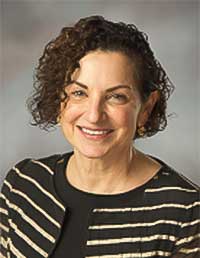
Carlos Crespos
2018 Forum Annual Meeting speaker, Portland State University (PSU)
Carlos Crespos
2018 Forum Annual Meeting speaker, Portland State University (PSU)
Carlos Crespo is vice provost for undergraduate training in biomedical research at Portland State University (PSU) and professor in the Oregon Health & Science University (OHSU) PSU School of Public Health. He is the principal investigator of BUILD EXITO, a partnership with nine other community colleges and universities in Oregon, Washington, Alaska, Hawaii, Guam, American Samoa and the Commonwealth of Northern Mariana Islands. He graduated from the Inter American University of Puerto Rico, and received a M.S. from Texas Tech University and a doctor of public health from the Loma Linda University in California. His main areas of research are physical activity and minority health.
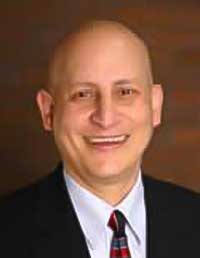
9:30 – 9:45 am
Break
9:45 – 11:00 am
Storytelling Secrets: How to Make Your Message Resonate with Legislators & Other Key Stakeholders
The challenges faced by higher education institutions are increasingly complex. How can we help legislators and other key stakeholders understand some of these issues and effectively engage with us as partners in developing solutions that will lead to increased student success? Let’s hear what these WICHE commissioners with experience on both sides of the conversation can share with us.
Moderator: Clayton Christian, Montana University System
Speakers:
* Clayton Christian
Commissioner of Higher Education, Montana University System
Clayton Christian *
Commissioner of Higher Education, Montana University System
For over a decade, Clayton Christian has proudly served the students of Montana. During his tenure on the Board of Regents (May 2006 – December 2011), Christian was a champion for common course numbering, tuition freezes, and other system initiatives aimed at increasing student access, success, and affordability. As chair of the Board of Regents, he continued to focus on implementing measures to improve system accountability, transparency, productivity, and increased confidence in higher education. He was and continues to be an advocate for increased opportunities in distance learning, a measure that continues to have a significant impact on a state that encompasses over 147,000 square miles. In 2012, Christian was asked to continue his service to Montana as the Commissioner of Higher Education. Under his leadership and on behalf of the Board of Regents and in partnership with university presidents, he has elevated Montana’s educational system that serves nearly 45,000 students and 9,000 faculty annually at 16 public colleges and universities. As commissioner, Christian has leveraged public and private partnerships to dramatically increase growth in workforce development, implemented innovative state investments which yielded record amounts of university-based research, and implemented performance-based funding with institutional incentives for student retention.
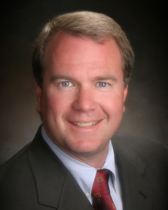
* Barbara Damron
WICHE Chair, and Professor, College of Nursing and School of Medicine, Senior Advisor to the Director of Project ECHO, University of New Mexico
Barbara Damron *
WICHE Chair, and Professor, College of Nursing and School of Medicine, Senior Advisor to the Director of Project ECHO, University of New Mexico
Barbara Damron is a tenured professor at the University of New Mexico (UNM) College of Nursing and the UNM School of Medicine’s Department of Family & Community Medicine; she is also the senior advisor to the director for Project ECHO®. Prior to that, she served as the chief government relations officer for UNM. She was also New Mexico’s Cabinet Secretary of Higher Education for four years.
On the national level, Damron has been a National Academy of Medicine/Robert Wood Johnson Foundation Congressional Fellow in the United States Senate Committee on Health, Education, Labor & Pensions (HELP); an American Political Science Association Congressional Fellow in the United States Senate Committee on Health, Education, Labor & Pensions; a Congressional Fellow for Senator Lamar Alexander; Commissioner of the Western Interstate Commission for Higher Education (WICHE); Commissioner of the Education Commission of the States; and sits on the Board of Directors of Complete College America.
Damron’s long professional history spans over 45 years (26 in New Mexico), including being a leader in education, a healthcare executive, an advanced practice nurse, a college professor, an international consultant, and a cancer scientist. She has built positive and extensive relationships within the state’s higher education community, as well as within the legislative and executive branches. She has also worked alongside community and state leaders on the promotion of civic engagement and was featured as a panelist at the Hispanic Leadership Institute’s (USHLI) “Latinas in Politics” forum previously at UNM.
Damron received a Bachelor of Science in Nursing from Union College in Lincoln, Nebraska, a Master of Science in Nursing from the University of Texas Health Science Center at San Antonio, and a doctorate in educational psychology from the University of Texas at Austin.
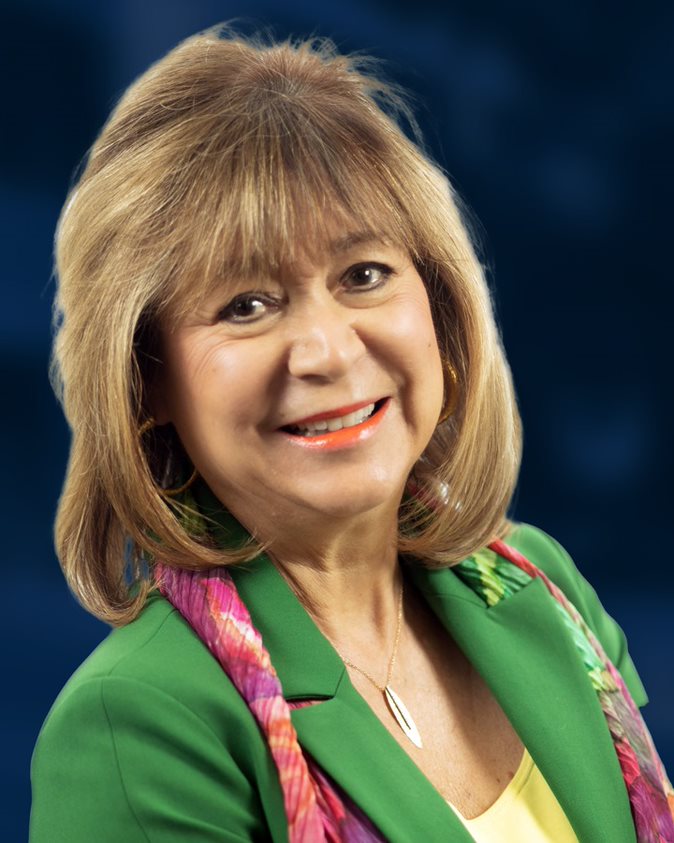
Gerry Pollet
Representative, Washington State Legislature
Gerry Pollet
Representative, Washington State Legislature
Representative Gerry Pollet has served in the Washington State House since December 2011. Pollet is an attorney and faculty member at both the University of Washington School of Public Health and Western Washington University. Pollet serves on the Postsecondary Education, Education, Appropriation and Rules Committees. Pollet was deeply involved in developing and passing the Washington College Grant, accompanied by dedicated funding, to provide one of the nation’s broadest need-based aid programs. He was the author of a program responding to the critical shortage of teachers in Washington, including a grant program to pay tuition for low-income students seeking to be teachers in underserved areas. Pollet has been honored several times as the Legislator of the Year for his work to improve affordable access to higher education and improved student success. He is the House sponsor of The Washington Promise, for free community college tuition.
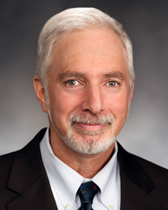
11:00 – 11:15 pm
Break
11:15 – 12:15 pm
Lightning Round: Telling the Compelling Wellness Story
In our role as chief academic leaders we need to help our stakeholders understand the challenges our institutions face in meeting the goals for students’ success, given the diverse needs of today’s student population. Join this session to participate in very frank roundtable discussions among colleagues about the lessons learned from both successes and failures when speaking to critical audiences on this very important topic.
Discussion Leader: Gail Burd, University of Arizona
Table Hosts:
- Greg Benson, Utah System of Higher Education
- Karen Carey, University of Alaska Southeast
- Beth Freeburg, University of South Dakota
- Vicki Golich, Metro State University of Denver
- Kamel Haddad, California State University, San Marcos
- Kelly Long, Colorado State University
- Megan Selheim, University of Wyoming
- Donald Straney, University of Hawaii System
Instructions for Lightning Round Sessions
12:15 – 1:15 pm
Awards Luncheon
During this year’s award luncheon, we’ll tell you about an exciting new process
whereby you will be involved in selecting this year’s award winner.
Carl Wieman
2018 Forum Annual Meeting speaker, Stanford University
Carl Wieman
2018 Forum Annual Meeting speaker, Stanford University
Carl Wieman has been a professor of physics at the graduate school of education at Stanford University since 2013, and before that was at the Universities of Colorado and British Columbia and was the associate director for science in the White House Office of Science and Technology Policy. Wieman has carried out extensive research in both atomic physics (Nobel Prize 2001) and undergraduate science education (Carnegie Professor of the Year 2004), including institutional change in teaching. Wieman received his B.S. from MIT and Ph.D. from Stanford University. Wieman recently published a book on large scale change, Improving How Universities Teach Science: Lessons from the Science Education Initiative.
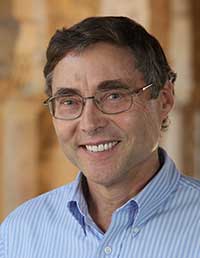
Transforming How We Teach; Great Opportunities and Challenges
Research advances have led to new teaching methods that produce large improvements in outcomes for all undergraduate students, particularly those at-risk, but the implementation requires expertise that few faculty have. The challenge for universities is; how can we change the culture so faculty collectively value and learn this expertise, and what support will make this learning most efficient and effective. This session will discuss issues and solutions.
Introducer: Renny Christopher, Washington State University Vancouver
1:15 – 1:30
Break
1:30 – 2:30
Delivering the Right Message at the Right Time in the Right Way for the Right Effect
Today’s students and faculty are inundated with messages from sun up to sun down and most of the time in between. What are some effective strategies that ensure our communications will rise above the rest with one or both audiences? How can we deal with some of the ethical and boundary challenges that arise with the use of social media?
Moderator: Paul Turman, South Dakota Board of Regents
Speakers:
Carina Beck
2018 Forum Annual Meeting speaker, Allen Yarnell Center for Student Success
Carina Beck
2018 Forum Annual Meeting speaker, Allen Yarnell Center for Student Success
Carina Beck has served as the director of the Allen Yarnell Center for Student Success since 2014. Within this role, Beck oversees several student services offices that work together to advance retention and graduation outcomes for Montana State University (MSU). In addition, Beck also oversees the MSU Hilleman Scholars Program, a scholarship program designed to improve graduation outcomes for Montana resident students. Beck earned her bachelor’s and master’s degrees in organizational communication and her doctorate in higher education. Through her interdisciplinary background, Beck focuses on the socialization process of students, and communication and analytical methods of institutions to advance student outcomes.
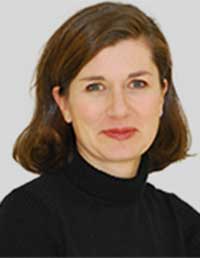
Michael Caulfield
2018 Forum Annual Meeting speaker, Washington State University (WSU)
Michael Caulfield
2018 Forum Annual Meeting speaker, Washington State University (WSU)
Michael Caulfield has served as director of blended and networked learning for Washington State University (WSU) Vancouver since 2013. He assists faculty with the integration of technology into teaching, and promotes new net-enabled pedagogical practice at WSU and in cross-institutional projects. Previously, Caulfield worked for Massachusetts Institute of Technology as the director of community outreach for the OpenCourseWare Consortium, and as an instructional designer and programmer in both corporate and university contexts. He received his M.A. in English from Northern Illinois University.
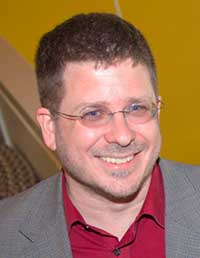
Laura Malcolm
2018 Forum Annual Meeting speaker, Civitas
Laura Malcolm
2018 Forum Annual Meeting speaker, Civitas
Laura Malcolm serves as vice president of outcomes and strategy at Civitas. She is passionate about helping others improve their lives through education. She began her career as a high school teacher in Austin, Texas and through that experience discovered her deep interest in designing tools to help people learn. Prior to working at Civitas Learning, she spent ten years in executive leadership roles directing the design and development of innovative educational technology products. Malcolm is a two-time CODiE Award recipient from the Software and Information Industry Association for product design and received her B.A. and B.F.A. from University of Texas at Austin, and M.A. in learning, design and technology at Stanford University.
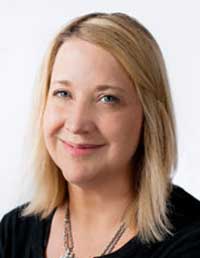
2:30 – 3:30 pm
Scaling Up Boutique Student Success Efforts for Broader Impact
A plethora of student success initiatives abound in the K-12 and two-year sector and some are making a real difference for students. More effective counseling of high school students, guided pathways, apprenticeships and lifelong learning are just a few of these efforts. Yet, many are boutique in nature, providing excellent service to those they reach. How will some of these efforts scale in the future to ensure more students benefit from their first-rate services? How are student expectations and opportunities in the four-year sector likely to change as a result?
Moderator: John Cech, Montana University System
Speakers:
Patrick Briggs
2018 Forum Annual Meeting speaker, AVID (Advancement Via Individual Determination)
Patrick Briggs
2018 Forum Annual Meeting speaker, AVID (Advancement Via Individual Determination)
Patrick Briggs has spent the past 5 years as the AVID (Advancement Via Individual Determination) state director for Texas. As of June 2017, he added the states of Arkansas and Oklahoma to the states he leads as an AVID state director. Prior to this post, Briggs was the AVID Texas state assistant director. Before that he spent 15 years as a teacher and administrator in Cypress-Fairbanks Independent School District in Texas. Briggs earned his B.S. degree in biology and his master’s degree in educational administration from Prairie View A & M University.
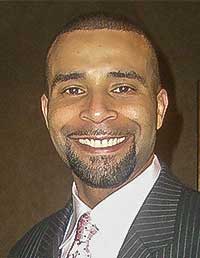
Kimberly Green
2019 Alliance Annual Meeting speaker, National Association of State Directors of Career Technical Education Consortium
Kimberly Green
2019 Alliance Annual Meeting speaker, National Association of State Directors of Career Technical Education Consortium
Kimberly Green has worked extensively on federal policy impacting Career Technical Education (CTE) for the past twenty-four years. Working closely with U.S. Congress, the administration and a broad range of stakeholders, she represents the interests of and seeks support for CTE. In her position with the National Association of State Directors of Career Technical Education Consortium, Green helped to secure the largest philanthropic investment in career readiness/CTE: the New Skills for Youth Initiative funded by JPMorgan Chase & Co. invests in systemic, state-level transformation to increase access to high-quality CTE and aligns to the aspirations of Putting Learner Success First. With the support of Pell Grants and the federal work study program, she is a graduate of Cornell University’s School of Industrial and Labor Relations.
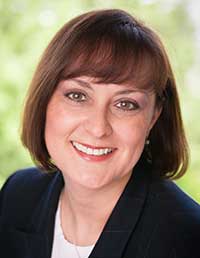
3:30 – 3:45
Good Ideas with the Evidence to Prove It!
In this fast-moving session, we’ll hear about some of our members’ exciting ideas, how they brought them to life, and what evidence exists to verify their success. Each speaker will have just two minutes to tell us all about it. What a great way to wrap up the day with a whole collection of new, proven ideas to try out back home!
Emcee: Veronica Dujon, State of Oregon Higher Education Coordinating Commission
Speakers:
- AK: Using iPads at a Distance – Karen Carey, University of Alaska Southeast
- AZ: Using PeopleSoft to Collect Data and Report on Faculty Credentials for the Higher Learning Commission Qualified Faculty Requirement – Gail Burd, University of Arizona
- CA: How to Spread the Effective Use of Data Effectively on Campus – Brian Jersky, California State University, Long Beach
- CO: Diversifying Faculty and Staff – Strategies that are Successful – Vicki Golich, Metropolitan State University of Denver
- HI: Opening the Front Door to Students: A Strategy to Move from Tension to Fun – Michael Bruno, University of Hawai‘i at Mānoa
- ID: Institutional Effectiveness and Assessment Council – Selena Grace, Idaho State University
- MT: Improving Academic Outcomes: From Math Pathways and Co-Requisite Education to Freshman 15 – Robert Mokwa, Montana State University
- ND: Barrier Busters to Promote Graduation and Retention – Debbie, Storrs, University of North Dakota
- NM: Aggie Pathway to the Baccalaureate – Greg Fant, New Mexico State University
- NV: NevadaFIT Freshman Academic Bootcamps – Joe Cline, University of Nevada Reno
- OR: Improving the Student Experience: Interactive Degree Planning – Randi Harris, Portland State University
- OR: Are We in Touch with Learners of the Future – Susan Walsh, Southern Oregon University
- Improving the Student Experience: Interactive Degree Planning – Randi Harris, Portland State University
- SD: Implementing Block General Education Transfer – Paul Turman, South Dakota Board of Regents
- UT: Alternative Quantitative Literacy Completion Strategies – Michael Lacourse, Dixie State University
- WA: Quick Tips for Managing a Major Institutional Change: Shift in Budget Models – Gail Mackin, Central Washington University
- WY: Wyoming’s 2+2 Program-Level Transfer Articulation Agreements – Mary Aguayo, University of Wyoming
5:00 – 7:00 pm
Reception hosted by Pearson
Before dinner on your own, join us for a complimentary reception to network and mingle with peers, exchange ideas, and learn how your colleagues are implementing Inclusive Access to improve access and affordability. Look in your email inbox for registration information.
FRIDAY, APRIL 27
7:30 – 8:45 am
Breakfast and Forum Annual Membership Meeting
8:45 – 9:00 am
Break
Terry Jones
2018 Forum Annual Meeting speaker, Wayblazer
Terry Jones
2018 Forum Annual Meeting speaker, Wayblazer
Terry Jones is an author, venture capitalist, innovator and keynote speaker. He is the founder of Travelocity.com, founding chairman of Kayak.com and current chairman for Wayblazer, a company designed around innovation and travel. He has a proven track record of leading companies whose innovations have revolutionized an industry. His book, ON Innovation, has encouraged innovation and cultural change for readers worldwide. Jones is a graduate of Denison University and has an honorary doctor of letters from Sierra Nevada College.
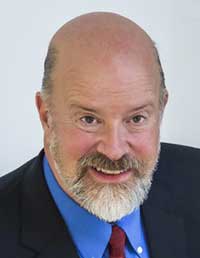
9:00 – 10:10 am
Artificial Intelligence & Its Place in the Future of the Professoriate
Leaders are worried. Businesses are being disrupted at an ever increasing pace and technological advances are converging to create unprecedented dislocation. Identify what these are and how you can turn them to your advantage. Terry reviews the to 10 technical forces of disruption and more importantly shows the new business models that result.
Introducer: Joe Cline, University of Nevada, Reno
10:00 – 10:15 am
Break
10:15 – 11:00 am
Lightning Round: Preparing our Faculty for the Intriguing Future of Teaching and Learning
The faculty role is evolving and so must our professional development strategies to help ensure that teaching and learning at our institutions are the best they can be. In roundtable discussions, we’ll talk about some of the successful approaches being used today that we can build upon, as well as explore new ideas that could help prepare faculty for the type of future we just heard about. Finally, we’ll discuss messaging strategies to inspire faculty to embrace this exciting future.
Discussion Leader: Gail Burd, University of Arizona
Table Hosts:
Jack Crocker, Western New Mexico University
Deb Hedeen, University of Montana, Western
Cher Hendricks, University of Idaho
Martin Klotz, WSU Tri-Cities
Tony Scinta, Nevada State College
Laura Woodworth-Ney, Idaho State University
Martin Carcasson
Colorado State University
Martin Carcasson
Colorado State University
Martín Carcasson is a professor in the communication studies department of Colorado State University and the director of the CSU Center for Public Deliberation (CPD). He is also the current chair of the board of directors of the National Coalition for Dialogue and Deliberation. His research is focused on helping communities address “wicked problems” more productively through improved public communication, community problem solving, and collaborative decision-making. The CPD is a practical, applied extension of his work, and functions as an impartial resource dedicated to enhancing local democracy in Northern Colorado. He received his Ph.D. from Texas A&M in 2004.
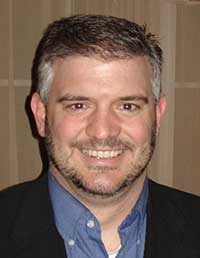
11:00 – 11:45
Tackling Wicked Problems from Campus: The Critical Role of University Centers, Faculty, and Students as Key Local Resources for Deliberative Engagement
Democracy requires high quality communication to function well, but unfortunately such communication is rare. Indeed, due to the increasing hyper-polarization that dominates our political landscape, our communities are struggling to talk about much less address difficult issues. Universities, however, have significant capacity and potential to serve as critical mediating institutions and take more responsibility for elevating the quality of public discourse in their local communities by adopting a passionately impartial role and supporting deliberative engagement.
Introducer: Renny Christopher, Washington State University Vancouver
11:45 – noon
Meeting Wrap-up and Adjournment